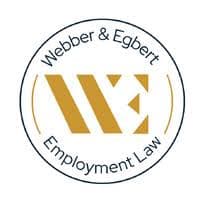Employment Lawyer San Jose - Protecting Your Rights at Work
Need an employment lawyer in San Jose? We offer practical, local solutions. Call us today for clear advice.

Employment Law
111 N Market St Suite 300, San Jose, CA 95113
With its main office in San Jose, King & Siegel LLP is one of the most prominent employment law firms in the region. The... Read More »
English
Specialization in:
Employment Law
Pregnancy Discrimination
Wrongful Termination
Wage Disputes
Sexual Harassment
Whistleblower Cases

Employment Law
333 W Santa Clara St Suite 820, San Jose, CA 95110
Webber & Egbert is an employment law firm located in San Jose serving clients across the Bay Area. It focuses on workpla... Read More »
English
Specialization in:
Employment Law
Wrongful Termination
Wage and Hour Disputes
Discrimination
Retaliation
Workplace Harassment

Employment Law
177 Park Ave Suite 200, San Jose, CA 95113
For The Nourmand Law Firm, APC, no employee in California workplaces, including those in San Jose, is underserved. Each ... Read More »
English
Specialization in:
Employment Discrimination
Wrongful Termination
Wage and Hour Disputes
Harassment Cases
Retaliation Claims
Whistleblower Protections

Employment Law
99 Almaden Blvd Suite 400 San Jose, CA 95113
Bryan Schwartz Law is an employee-focused law firm that is well-recognized for its practice. Under the guidance of attor... Read More »
English
Specialization in:
Employment Discrimination
Whistleblower Retaliation
Wage and Hour Class Actions
Litigation Concerning Rights of Employees
Wrongful Termination

Employment Law
99 Almaden Blvd Suite 400, San Jose, CA 95113
Shegerian Conniff LLP is an employment law firm that is San Jose based and primarily focuses on safeguarding the rights ... Read More »
English
Specialization in:
Employment Law
Wrongful Termination
Workplace Harassment
Wage Disputes
Discrimination
Retaliation Claims

Employment Law
50 W San Fernando St Suite 1500, San Jose, CA 95113
As one of the largest global employment and labor law firms, Littler Mendelson PC serves employers of all types and size... Read More »
English
Specialization in:
Employment Law
Labor Relations
Workplace Litigation
Wage and Hour Disputes
Harassment and Discrimination
Workplace Compliance Counseling

Employment Law
1501 The Alameda, San Jose, CA 95126
Habbas & Associates is a San Jose law firm that has a fully integrated practice and over 200 years of cumulative experie... Read More »
English
Specialization in:
Employment Law (Wage & Hour Disputes
Discrimination & Retaliation Age
Race
Gender
Sexual Harassment
Wrongful Termination)
Workers' Compensation
Whistleblower Claims

Employment Law
P.O. Box 1268, San Jose, CA 95108
Since 2011, Rutger Heymann has devoted his practice to employment law and has worked throughout Silicon Valley. From his... Read More »
English
Specialization in:
Employment Discrimination
Sexual Harassment
Wrongful Termination
Retaliation
Discrimination Regarding Disability or Pregnancy
Whistleblower Rights
Employment Contracts
Employment Fraud.
Introduction
Employees in California have the right to fair and lawful treatment at work. Unfortunately, violations occur with alarming frequency.
If you’re facing any kind of workplace injustice, whether it’s the sudden loss of your job, wage theft, a hostile work environment, or a dispute over your employment contract, consulting a skilled employment lawyer in San Jose can turn the tide in your favor.
These attorneys will clarify the complex maze of California and federal labor law, sketch the best path to resolution, and represent your interests to maximize the outcome, be it through private negotiation, filing a claim with a state agency, or pursuing a lawsuit.
Silicon Valley is home to unique employment challenges. Questions about stock options, bonuses, and restricted stock units often come up, as does the misclassification of workers as independent contractors.
Additionally, the prevalence of non-disclosure agreements and the value of proprietary information create friction over privacy and trade secret rights.
When the stakes are highest in executive departures or promotions, local lawyers can tap their first-hand knowledge of Santa Clara County’s labor board, the superior court, and local arbitration venues to position your case advantageously.
Common Employment Issues San Jose Workers Face
Among the workplace problems that routinely drive San Jose workers to seek legal counsel, the most frequent include -
- Wrongful termination - firing that breaks public policy, violates the terms of an employment contract, or is a retaliatory act in reaction to a complaint or whistleblowing.
- Discrimination and harassment - harmful treatment based on race, gender, age, age, disability, religion, nationality, sexual orientation, gender identity, or pregnancy, which has created a hostile or intolerable work environment.
- Wage and hour violations - failure to pay overtime, work performed off the clock, unexplained discontinuation of meal and rest breaks, misapplied exemptions, and unpaid final paychecks.
- Independent contractors in California - especially those in tech and gig platforms, face rising risk of misclassification lawsuits. The California ABC test under AB-5 often clouds the line between employee and true contractor status. Status affects access to regular employee benefits and protections. Review of assignments and compensation structures is critical for any platform relying on gig workers.
- Retaliation claims - Employees disciplined for whistleblowing on safety hazards, prevailing-wage violations, or for exercising legally asserted leave rights are well-protected under California law. Quick investigation and remediation is essential to limit exposure to labor board or court actions.
- Leaves and accommodations - The FMLA and CFRA, combined with California pregnancy disability leave, set high standards for notice, certification, and leave duration. The Americans with Disabilities Act and Fair Employment and Housing Act further mandate reasonable accommodation. Missteps can expose employers to cumulative liability.
Trade-secret disputes often arise when departing tech professionals contest alleged violations of non-compete agreements, generally unenforceable in California, or when employers assert fungible secrecy misappropriations through NDA breaches.
Careful evaluation of NDA language and defense strategy is crucial for both sides.
California Law Is Employee-Friendly - What That Means for You
California law is designed to be strongly employee-central. Keep these standards on the radar. The Fair Employment and Housing Act covers any customer or subcontractor line of harm, extending reach to disabled veterans and survivors of severe illness.
Overtime in the tech sector, on a day-off or under non-high-native titles, counts for both seventy-five percent and a ten percent premium, dwarfs summed wages for many gig conductor schedules. Mislabeling workers as contractors or exempt can, and does, ignite daylight employee claims that add retroactive rights and heft to already extensive labor risk.
- Whistleblower and retaliation protections - Employees who report unlawful activity, like wage theft or safety hazards, cannot be punished for speaking up, and they may seek remedies through state agencies or file lawsuits.
- Limited enforceability of non-competes - California mostly bans non-compete agreements outside of narrow business-sale situations. Some employers nevertheless press for NDAs or vague restrictive language, so consulting a lawyer can clarify your exposure.
- Private enforcement tools - PAGA (Private Attorneys General Act) empowers workers to file lawsuits for Labor Code breaches and collect penalties for the state, a powerful alternative in wage-and-hour disputes.
Because of California’s safeguards, many workers in San Jose can press claims and resist settling for token severance, especially when an employment attorney in San Jose collects the right proof and selects the proper venue.
What To Do Before You Call an Employment Lawyer San Jose
If your call to a lawyer is imminent, take these steps to protect your claims and cement your bargaining power -
- Assemble key documents - offer letters, signed contracts, last performance reviews, pertinent emails or texts, pay stubs, time sheets, termination notices, and any HR complaints you lodged.
- Chronicle primary facts - incident dates, work locations, witnesses, statements employers made, pay periods affected, and dates you requested any kind of leave.
- Limited enforceability of non-competes - Don’t agree to a severance or release until you’ve spoken with a lawyer; signature waivers often reach into the future and kill claims you’ve not yet envisioned.
- Keep electronic evidence intact - back up key texts and emails (company policy may restrict your use of employer systems, so run the plan past legal first).
When a workplace grievance arises, file a timely internal complaint: if the business has a written process, submit a detailed complaint and then complete the prescribed steps, this paper trail will prove invaluable.
A prompt meeting with an employment counselor clarifies which records require safekeeping and the legal method to secure them.
Where to Bring the Claim - Agencies and Courts
Most workplace disputes in California begin with an agency rather than a courthouse. Your attorney will determine which carrier to proceed with -
- DFEH (California Department of Fair Employment and Housing) - handles workplace discrimination, harassment, and, in part, whistleblower retaliation; in most cases you must file with them and wait for a Right-to-Sue notice before pursuing a lawsuit.
- EEOC (Equal Employment Opportunity Commission) - federal counterpart for discrimination and harassment cases where a federal statute applies; charges can often be dually filed with the DFEH to preserve claims in both federal and state forums.
- DLSE (Division of Labor Standards Enforcement / California Labor Commissioner) - adjudicates wage claims, unpaid final wages, and penalties for unpaid waiting time wages.
- Private Litigation - most claims move into superior court directly, or to arbitration if an enforceable clause governs the agreement. Arbitration limits some remedies, so a lawyer determines the clause’s validity and the best motion or counter-defense. A clause that seems broad sometimes divulges narrow exceptions.
- PAGA filings - most are initially screened through the state’s portal, and the statute’s timelines demand strict program-by-program observance. Failing the timing or the format results in surrender, not leave to amend.
An employment lawyer in San Jose custom-designs the procedural map, matching each task to deadlines, the relief requested, and the necessity for equitable reinstatement, injunction, or declaratory relief. A focus on equitable options, accomplished sooner, sometimes elevates settlement value.
Common Remedies - What You Can Recover
California statutes authorize the following recoveries, depending on the theory and the proof -
- unpaid back pay, final wages, and overtime, recognized at the higher rate owed at the date of pay;
- front pay or reinstatement determined in light of the plaintiff’s stability on the job and the employer’s documented pre-dismissal concern;
- compensatory damages for the plaintiff’s annoyance, injuries to livelihood identity, and loss of self-regard;
- liquidated damages with punitive aspects when the employer’s state of mind reflects oppression;
- statutory penalties for waiting-time claims and wage-hour violations, calculated at the rate and period specified for each type;
- attorney’s fees as promptly provided in certain statutes;
- and, when timing allows, an injunction requiring the employer to alter a practice, reinstate an employee, or provide the necessary accommodation.
An employment attorney estimates and ranks recoveries up front so the plaintiff can judge the relative cost of a full litigation, an early mediation, or a careful settlement.
The modeling folds into each prognosis the predictable costs, the employer's documented defenses, and the emotional injury of the employee, balancing litigation, resolution, and the timing that the employee prefers.
How Your Employment Lawyer Shapes Your Case
Winning an employment dispute takes more than indignation and an angry email, it takes documented facts and considered legal strategy. When you secure an employment attorney in San Jose, here’s what usually happens -
- First, they construct a tight timeline. Your attorney lays out when each incident occurred, records every complaint made, charts HR responses, and pinpoints critical emails, ensuring every event paints a consistent, verifiable picture.
- Next, they lock down and gather the necessary evidence. Counsel despatches preservation letters, requests payroll and time records, gathers text messages, and pulls personnel files and performance reviews so that nothing useful slips away.
- Then, they secure reliable witness statements. Interviewing former and current colleagues soon after the incident often carries more weight than recollections made months later, so each tour of the office yields fresh and unbiased accounts.
- If the situation demands it, they bring in experts. In complicated wage-and-hour suits, an accountant or wage analyst may quantify overtime owed, misclassification losses, and late penalties; for hostile workplace situations, a culture analyst may describe broken reporting lines.
- After that, they prepare and categorically prove your administrative charge or demand letter. A persuasive demand and a compelling DFEH or EEOC filing can prompt amicable settlements; a careless draft invites needless delay and definitive denials.
- Finally, they negotiate with purpose. A seasoned employment lawyer plays multi-move chess, charging only when timing is tight, using strategic discovery, keeping the employer on its toes while protecting your current post and confidentiality whenever possible.
Your employment attorney will establish a clear timeline for resolution from the moment you reach out, identifying the documents and witness testimonies required at every stage.
Executive & C-Suite Disputes - Equity, Vesting, and High-Stakes Exits
Amid the San Jose startup landscape, nearly every employment conflict centers on equity: RSUs, stock options, disputed vesting acceleration, confidentiality clause breaches, or terms of a “for cause” termination defense. These matters, because of their higher stakes, demand precision.
As a C-suite or founding team member, your employment attorney will -
- Scrutinize your equity grant packets. Pinpoint vesting cliffs, exercise periods, buy-back authority, and the impact of any filed 83(b) elections.
- Review the conditions for separation. Confirm whether “for cause” grounds were formally documented and whether any required pre-notice or cure periods were honored.
- Engage specialized securities and tax counsel. Equity negotiations typically entail 409A compliance, potential tax events on buyout receipts, and transfer prohibitions.
- Petition for injunctive relief, if warranted. When a startup threatens an accelerating vesting clawback or shutters an upcoming exercise window, your attorney is prepared to seek emergency court intervention.
- Craft an optimized severance. CEO and founder severance arrangements frequently negotiate for interim vesting continuance, prolonged exercise terms, consulting roles, and executive outplacement, each an agreement line subject to strategic bargaining.
- Executive matters call for attorneys fluent in employment, corporate, and tax law, versed in Silicon Valley compensation customs. Choose counsel with demonstrable experience in the region’s compensation configurations.
Arbitration vs. Court - San Jose Workers Need to Decide
Many San Jose employees find required arbitration hidden in their contracts. It generally promises faster outcomes and privacy, but employees must weigh real costs -
- Advantages - Arbitration awards usually arrive within months, hearings aren’t public, and employees generally pay for far fewer document requests than in court.
- Disadvantages - Challenges to the award are very limited, monetary awards can be trimmed by the employer’s contract wording, and arbitration fees can add up unless the employer covers them. Also, some arbitrators lean toward management while others favor workers, leading to unpredictable results.
- Assessing arbitration clauses - A San Jose employment attorney will determine whether the clause can be enforced, checking for arbitration terms that are one-sided, buried in dense print, founded on contracts that lack mutual duties, or that re-delegate the decision to a neutral employee never named.
- Making tactical moves - Even under a binding clause, counsel may negotiate interim no-retaliation covenants, file parallel complaints with state or federal wage agencies, or seek temporary restraining orders that keep the employee’s workplace intact.
Your employment lawyer in San Jose will select the forum that maximizes the relief sought, the breadth of document demands, and the employee’s likelihood of success.
Finalizing Severance & Exit Offers
Employers often hand a severance package and expect a quick “yes,” but an attorney will urge employees to wait -
- The lawyer first examines the release to see whether the employer is trying to release unrelated federal, state, or local employment-statute claims, or to erase future whistleblower claims.
- Next, the attorney negotiates the terms; Can the employee keep vesting stock or extend the exercise window of options? Can equity awards be delivered in a tax-efficient method? Each question adds real, negotiable value.
- Insist on neutral job references and non-disparagement clauses; these clauses protect your long-term employability while reducing rumor risk and controlling your narrative.
- Request outplacement services, COBRA continuation subsidies, and guaranteed bonus payments; well-negotiated perks cushion the shock and keep cash flowing in the months that follow.
- Schedule your severance announcement so that it aligns with the filing of any potential administrative claims. Sometimes counsel can craft a limited waiver that lets you still pursue a DFEH or EEOC charge down the road.
A deliberate round of give-and-take often advances your interest farther than a slapdash settlement whisked through in a day.
Wage-Hour & Misclassification Relief - What They’re Worth
California stands out in the breadth of remedies for missed breaks, unpaid overtime, or a mistaken classification.
You can pursue -
- Back pay for overdue straight-time and overtime hours, plus pay for any missed meal or rest break premiums.
- Waiting-time damages if pay dispensation is tardy on termination day.
- Reimbursement for out-of-pocket work expenses like mileage, supplies, and a penalty for failure to make these payments in the standard time.
- Recovery and penalties under the PAGA statutes for Labor Code infringements.
- Statutory damages for wage theft in certain limited instances, plus recovery of your ignored statutory right to attorney fees.
An employment attorney in San Jose will itemize realistic, defendable dollar values, so you weigh if the upper-end settlement upfront equals the likelihood of a higher award in a formal court.
Timelines & Statutes of Limitation
Deadlines control every employment claim, and overlooking one can cancel your right to recovery for good -
- Harassment/discrimination/retaliation (DFEH/EEOC) - Under FEHA, you usually have 3 years to submit to the DFEH, but the clock shrinks if you plan to follow up in federal court, and other timing rules apply. For pure federal complaints at EEOC, the deadline is generally 180 days (180 days is extendable in special cases).
- Wage-and-hour disputes - The period is usually 2 to 3 years, with 3 years for willful violations, plus different rules if you file under the Private Attorneys General Act (PAGA).
- Breach of employment contract - The typical limitation period is 2 to 4 years, depending on the terms of your contract.
- Wrongful termination or retaliation - You may have to wait for the relevant administrative agency (DFEH, EEOC, or NLRB) to issue a right-to-sue letter; the deadline is the same as within the harassment/discrimination/retaliation category and may vary according to agency guidelines.
Consulting an employment attorney as soon as a potential claim arises keeps your options open, stops the clock from running on your rights, and assists counsel in determining the correct first forum, administrative or judicial.
Conclusion
Disputes arising within a Bay Area workplace demand immediate, knowledgeable intervention. Whether you have unpaid overtime as a technician, an executive negotiating a contested stock arrangement, or a manager confronting retaliation claims, an experienced employment attorney in San Jose will review the facts, maintain critical records, and select the most favorable forum.
These cases often involve substantial economic and professional repercussions. Seeking counsel early minimizes the risk of strategic missteps and maximizes the likelihood of an advantageous resolution.
Frequently Asked Questions (FAQs)
What should I prepare for in attorney fees?
Fees depend on the case type. Typical wage claim cases are pursued on a contingency fee, meaning the lawyer gets a percentage of the recovery.
Can I still take legal action after signing a severance release?
A properly executed release may waive claims; still, if the waiver does not meet statutory or procedural requirements, it can be challenged. Furthermore, certain claims, such as unpaid wages or unlawful discrimination, can sometimes be preserved or renegotiated.
What if I’m bound by my employer’s arbitration clause?
Arbitration agreements are prevalent and may be enforceable, but they sometimes contain unfair or one-sided terms.
How long will pursuing my claim take?
Resolution times differ; informal demand or mediation can lead to a settlement in a matter of weeks; agency investigations (like DFEH or EEOC) usually last several months; and full civil litigation may extend beyond a calendar year.